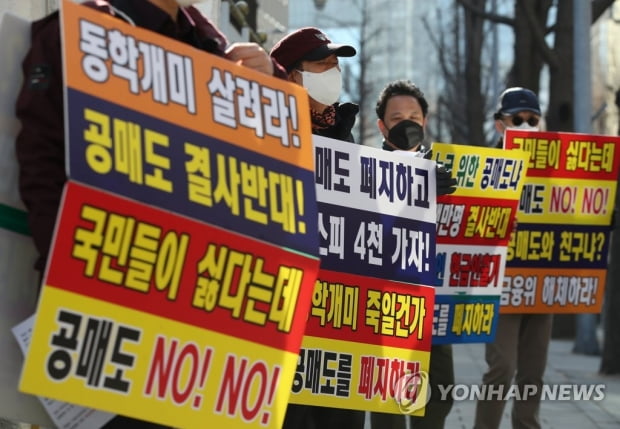HLB’s 300 billion won the most on KOSDAQ

While some individual investors, led by the Korea Stock Investors Association (Han Tu-yeon), have declared short selling and war, attention is focused on stocks with large short selling balances.
This is because the higher the amount of short selling, the greater the loss of short-selling investors when short squeezes are made (investors who sell short stocks quickly buy stocks while seeing losses).
According to the Korea Exchange on the 2nd, Celltrion’s short selling balance as of the 28th was 2.59 trillion won, the largest among securities market stocks.
Samsung Electronics (313.6 billion won) and Samsung Biologics (310.3 billion won) were followed.
In the KOSDAQ market, HLB (37.9 billion won), Celltrion Healthcare (222.4 billion won), KM Double U (199.5 billion won), and Pearl Abyss (114.8 billion won) were the most in the order.
Earlier, Han Too-yeon officially declared a war against short selling and expressed its intention to solidarity with the shareholders of Celltrion and HLB, which have a large balance of short selling in the KOSPI and KOSDAQ markets.
Like individual US investors engaged in a’short sale war’ with a hedge fund centering on the community site Reddit’s chat room’wallstreetbets’, it will respond by opening a’kstreetbets (KSB) site’.
Individual U.S. investors bought GameStop shares to raise the stock price.
As a result, it has been reported that some hedge funds, which have to pay off borrowed stocks, have suffered damage.
Short selling is selling stocks by borrowing them, so you have to buy them again to pay them back later.
Therefore, if the buy price is higher than the sell price, the investor who sells short will lose.
However, CEO Jeong Eui-jung Han Too-yeon said, “It does not mean that we will (buy) right now,” and “First of all, we plan to gather the forces of individual investors to examine the intentions of the members.
The current aggregated short selling balance, where short selling is prohibited, is estimated as the amount of short selling by the market maker.
When market makers buy futures in order to supply liquidity, they sell spots for hedging (risk aversion), using short selling.
In addition, there seems to be some remaining short sales before March last year, when short sales were banned.
The repayment period of borrowed shares is determined by mutual agreement and has no maturity.

There are mixed prospects as to whether the’Korean version of the game stop movement’ can be realized.
Hwang Se-woon, a research fellow at the Capital Market Research Institute, said, “It is a common phenomenon with the United States that domestic investors also show a much more organized trend through various group activities such as social network service (SNS).” A phenomenon similar to a stop can appear enough.”
A researcher at a securities company said, “In the US, short selling is excessive along with anger at Wall Street itself, where (fund managers) earn hundreds of billions of dollars from others, and retribution is strong for adjusting the market price. And institutional investment culture is not as aggressive as (US) hedge funds.”
He added, “It seems possible for individuals (like the United States) to cohesive like that,” he said. “It seems that Koreans are more concerned about the fall of the stock price of their stocks (by short selling) rather than anger toward institutional managers.
In addition, compared to GameStop’s share of short selling to the number of shares in circulation, he explained that the share of short selling of domestic stocks is not that large, making direct comparison difficult.
As of the 28th, the ratio of short selling balances to the number of listed stocks in the securities market was in the order of Lotte Tourism Development (6.77%), Doosan Infracore (5.04%), and Celltrion (4.56%).
In the KOSDAQ market, Shillazen (9.07%), HLB (6.52%), and KM Double U (6.13%) were in order.
As of March 13 last year, just before the ban on short selling, three stocks, including Helix Miss (13.59%), exceeded 10% in the KOSDAQ market.
At that time, Celltrion accounted for the largest share of short selling in the securities market at 9.35%.
A researcher at another securities company said, “There is a good chance that such a thing will happen for small stocks (like Gamestop). What’s more worrying is what if a bad company temporarily succeeds and then chases down and buys expensive money?” Said.
He added, “If you buy at a low price in the beginning and then make a profit in the middle, the question of what will happen remains,” he added. “There seems to be a situation that needs to be carefully looked at one by one because such a problem is also related.”
/yunhap news
